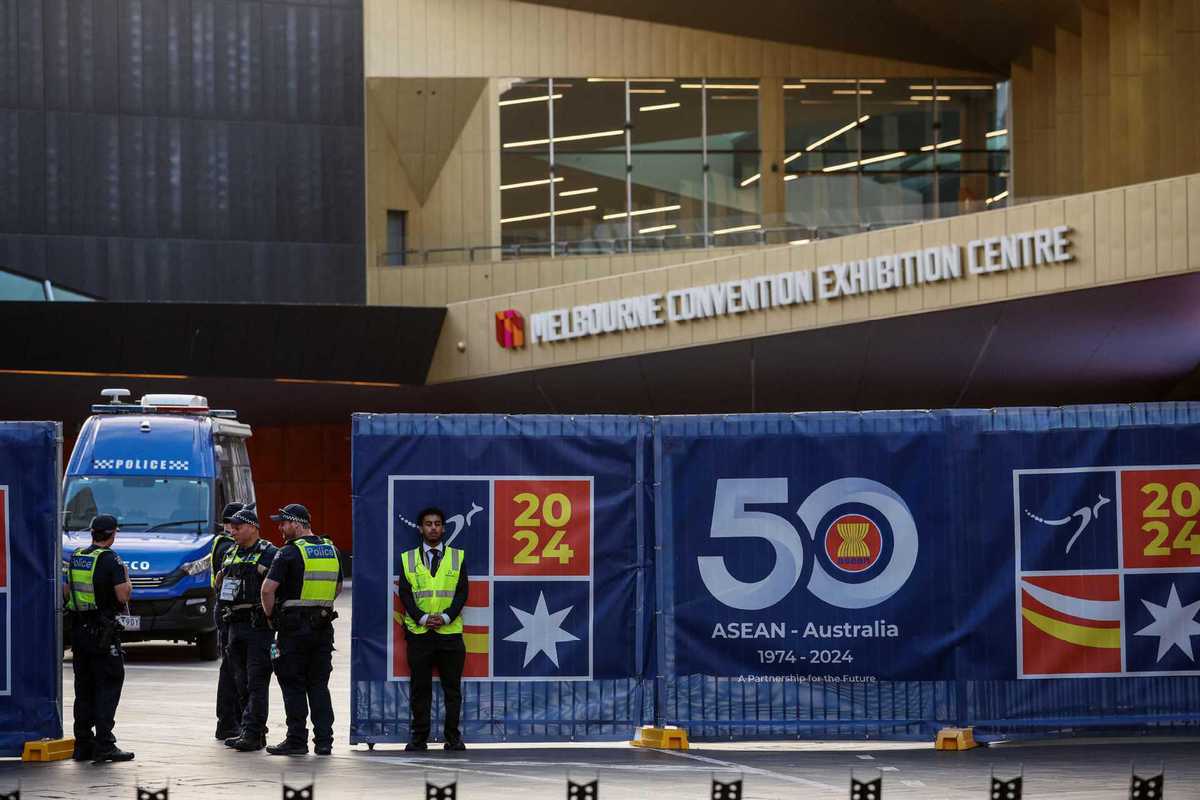ASEAN cautious of walking into the US trap


Malaysian Prime Minister Anwar Ibrahim standing alongside his Australian counterpart Anthony Albanese in Melbourne during Australia-Association of Southeast Asian Nations (ASEAN) Special Summit news conference pushed back against criticism that has been levied against Malaysia and regional countries for giving "additional focus" to Beijing, calling it as a "China-phobia" in the West.
"We are (an) independent nation, we are fiercely independent. We do not want to be dictated by any force. So, once we remain to be an important friend to the United States or Europe and here in Australia, they should not preclude us from being friendly to one of our important neighbors, precisely China," Anwar responded to a question interpreted as resistance to the US pressure in the world media.
His remarks – just days after the Philippine President Ferdinand Marcos Jr. in his speech to the Australian Parliament attempted to undermine regional peace and prosperity by calling upon Canberra and others to join forces in the face of alleged threats to the rule of law, peace and stability – represented ASEAN policy of safeguarding and promoting regional peace, security and stability; peacefully resolve all disputes through dialogue and fostering economic growth.
Relations between Beijing and Manila were relatively stable under the former Filipino president Rodrigo Duterte. But Marcos' rabble-rousing stance and Manila's provocative actions, military drills with America and Australia in the South China Sea), explicit intent to gang up alliances in support of the US-led efforts to stoke tensions in the strategic waterways threaten to challenge the long-established status quo that has helped to uphold peace and encouraged economic cooperation across Asia-Pacific.
Most ASEAN states want to maintain good relations with Beijing and Washington without taking sides; Manila under Marcos has become more assertive in the South China Sea at the behest of the US, which seeks to cement alliances in Asia-Pacific and needs its former colony to stem the rise of China let it be at the cost of ASEAN's peace and prosperity.
The Philippines' effort would meet with ambivalence since it attempts to pull apart the ASEAN unity and also because most Southeast Asian countries have historically maintained a pacifist approach toward Beijing, stressing on a diplomatic solution to the territorial disputes and prioritizing economic growth through cooperation with the world's second largest economy.
Since assuming office, Marcos has almost doubled the number of its bases accessible to the US forces with military exercises extending to joint air and sea patrols over the SCS and close to Taiwan. These actions as well as Manila's plan to upgrade its SCS outposts in addition to provoking Beijing threaten ASEAN's goal of ensuring regional peace and pushing its growth.
As Australia and the Philippines feature as major treaty allies in the US Indo-Pacific Strategy that aspires to "explore opportunities for the Quad to work with ASEAN" to trigger tensions in the region in the name of Free and Open Indo-Pacific and freedom of navigation, it naturally becomes a collective responsibility of all the countries in the region to increase engagement to protect the regional stability.
Southeast Asia, the world's "economic dark horse," has a vast economic potential especially with its vibrant and increasingly tech-savvy young population and a combined gross domestic product of $3.3 trillion as of 2021. Given several ASEAN states, including Malaysia, Indonesia and Vietnam, agree with China-led community of a shared future and bilateral trade continues to demonstrate a robust growth, both Washington and allies are struggling to align the regional countries against China and ASEAN remains very careful of walking into the US trap.
Azhar Azam works in a private organization as market & business analyst and writes on geopolitical issues and regional conflicts. The views don't necessarily reflect those of China Daily.
If you have a specific expertise, or would like to share your thought about our stories, then send us your writings at opinion@chinadaily.com.cn, and comment@chinadaily.com.cn.































